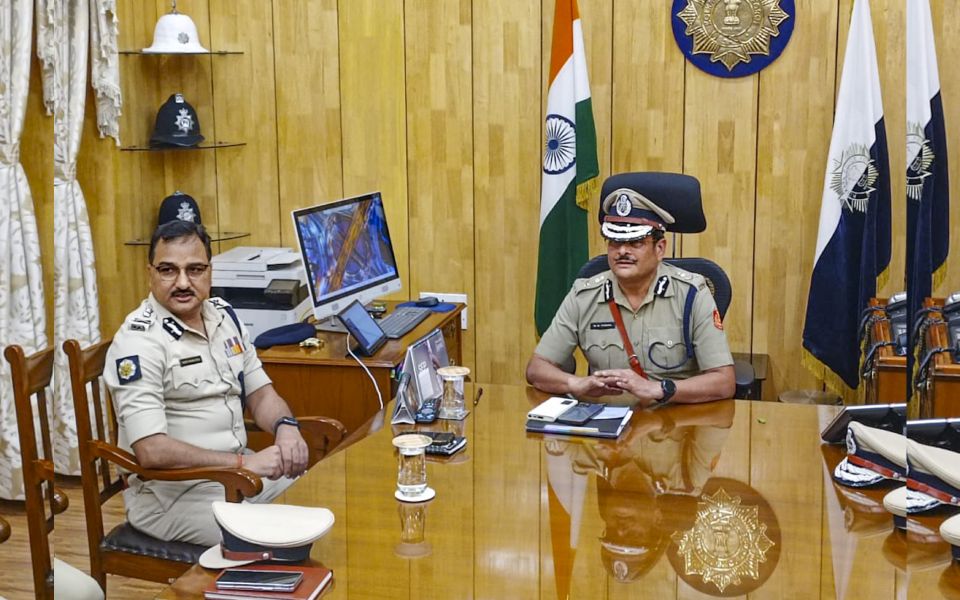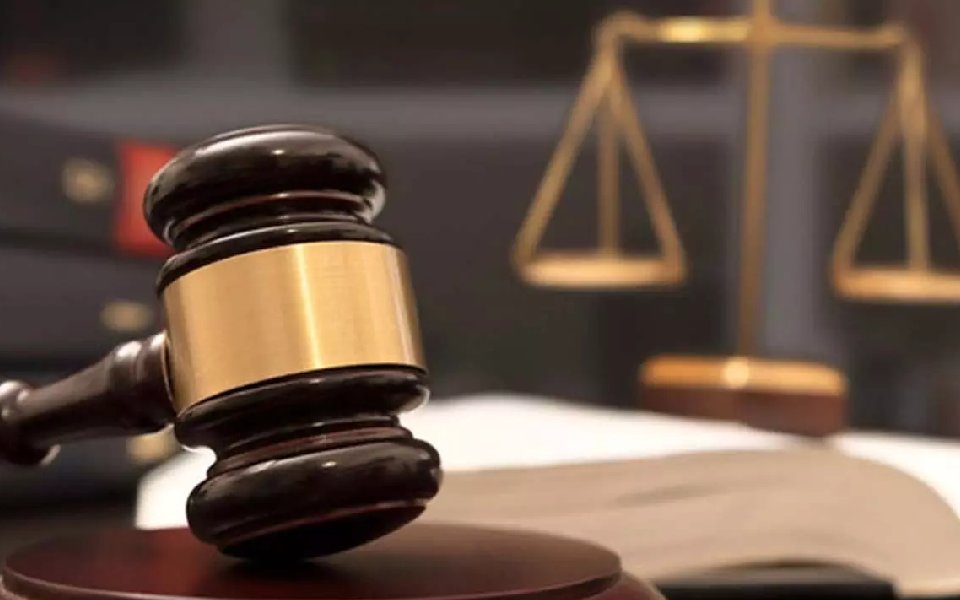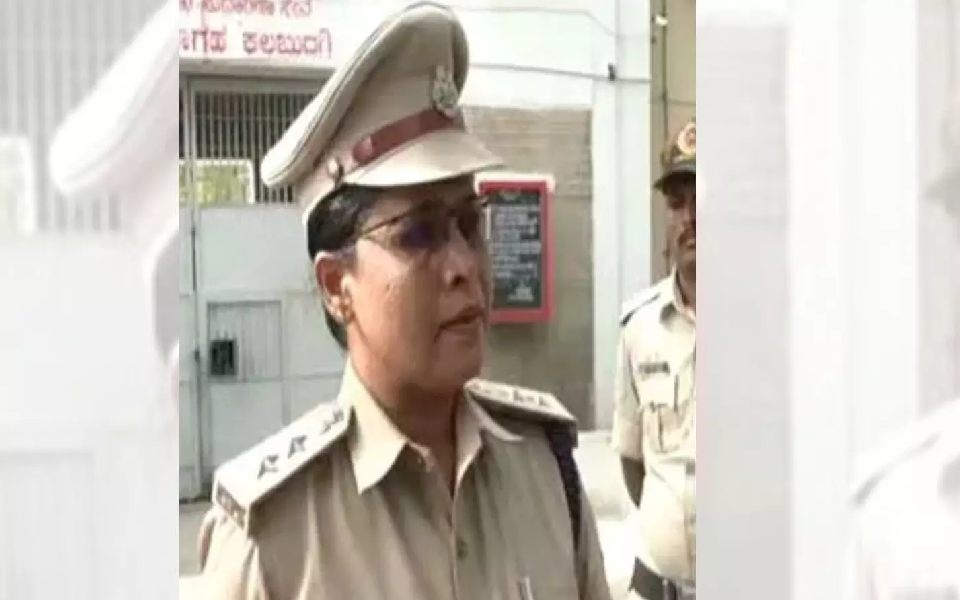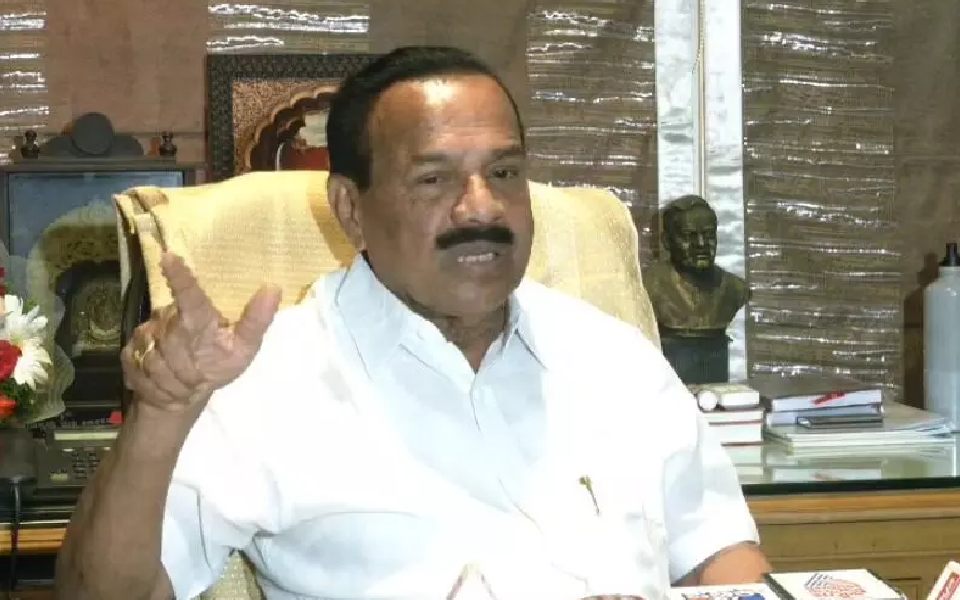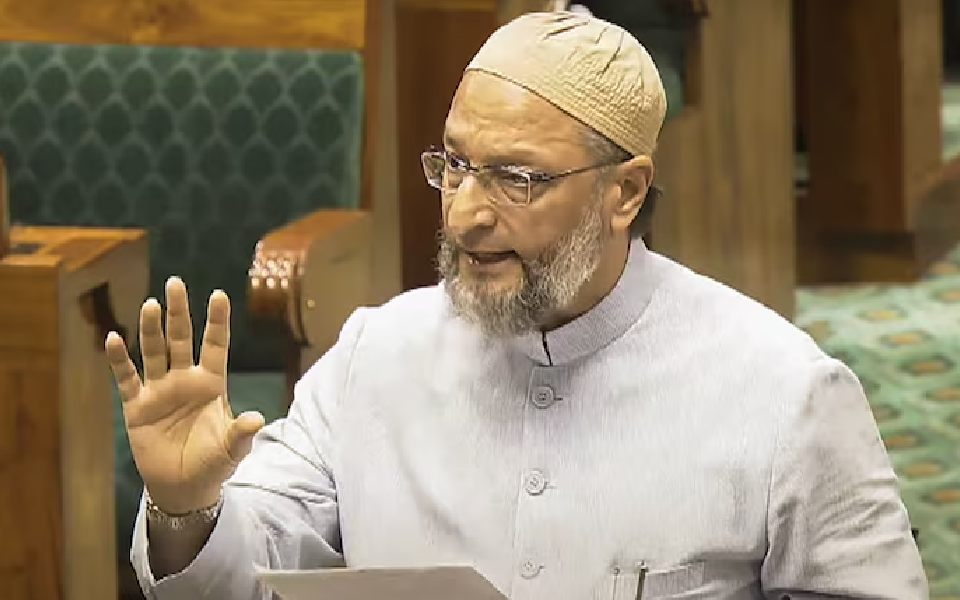Kolkata, Sep 17: In the autumn of 2010, when political winds were shifting in West Bengal, opposition leader Mamata Banerjee, then Railway Minister, denounced Paschim Medinipur police chief Manoj Verma and labelled him as a "CPI(M) agent" due to his crackdown on opposition activities, vowing to make him apologise once in power.
Fast forward 14 years to 2024, Banerjee, now a three-term West Bengal Chief Minister, has appointed the same IPS officer as the commissioner of Kolkata Police, which is under fire for its alleged mishandling of the high-profile R G Kar hospital rape-murder case.
Verma earned his credentials as a strong police officer during one of Bengal's most perilous times - the Maoist insurgency that plagued the district and the entire Junglemahal region in the late 2000s.
When he was appointed the SP in 2008, Maoists had entrenched themselves in large parts of the region, establishing a near-parallel authority.
Verma's approach combined toughness with community engagement, and while his operational style often faced criticism, especially from political opponents, it effectively led to the systematic dismantling of the Maoist stronghold in the district.
By 2010, as the Maoist movement faltered, Verma found himself at the centre of both praise and controversy. He defended the controversial methods of the security forces, including a particularly brutal encounter at Salboni where dead Maoists were tied to bamboo sticks for transportation.
His critics, particularly from the Trinamool Congress (TMC), accused him of being a pawn of the then-Left Front government, calling him a "CPI(M) agent".
Calling him a "CPI(M) agent" for his crackdown on Maoist insurgents that allegedly reinforced the Left government's control over rural Bengal, Banerjee, in a rally in October 2010, vowed to "make him apologise" once her party comes to power.
After coming to power in 2011, the TMC government put Verma on "compulsory waiting," but it wasn't long before it realised his indispensability.
When peace talks between the state and Maoists collapsed, Verma was brought back to head the counter-insurgency force.
He played a key role in ending the ultra-left movement in the region, which culminated with the encounter of top Maoist leader Kishenji in a police encounter in November 2011.
Verma's ability to handle crises isn't limited to the plains. In 2017, as violent pro-statehood agitations swept through Darjeeling, he was appointed Inspector General (IG) of the region.
The hills had erupted into chaos with the Gorkha Janmukti Morcha (GJM) leading the charge for a separate state of Gorkhaland which continued for 104 days.
Verma's tenure in the region was characterised by firm action, with several GJM leaders, including its supremo Bimal Gurung, forced to flee.
Verma's success in Darjeeling earned him further accolades, including the prestigious Police Medal for Meritorious Service in 2017.
Verma's next big challenge came in Barrackpore, where political violence had escalated in the wake of BJP's rising influence post-2019 Lok Sabha elections.
Gang wars, shootouts, and political killings became the order of the day, as the TMC and BJP clashed for dominance.
Appointed as the commissioner of Barrackpore Police Commissionerate, he again deployed his "iron-fist" approach against criminals.
Under Verma's leadership, political violence was curbed, but it came at a cost, as the BJP, especially then-local MP Arjun Singh, accused him of acting in favour of the ruling TMC.
Earlier this year just ahead of the Lok Sabha polls, he was appointed ADG (Law and Order) of West Bengal Police.
Now, as he takes charge of the 168-year-old Kolkata Police, he inherits a force under immense public and political pressure following allegations of mishandling the R G Kar rape-murder case, and all eyes are on how this seasoned officer will navigate these challenges.
An officer of Kolkata Police, Abhijit Mondal, the officer-in-charge of Tala police station, has been arrested by the CBI for allegedly tampering with evidence in the woman medic's rape-murder case.
Whether Verma's past successes will bring smoother times for Kolkata Police remain uncertain, but in this moment of crisis, Mamata Banerjee, once his fiercest critic, has come full circle by entrusting him to lead the city's law enforcement through yet another storm.
Verma has repeatedly proven his ability to rise to the occasion, whether by dismantling Maoist insurgencies in Paschim Medinipur, restoring peace in the volatile Darjeeling hills, or controlling political violence in Barrackpore, but his toughest challenge may now lie ahead in managing the complexities of the law and order situation in Kolkata, where intersections of politics, policing, and public perception create a unique test few other cities present.
Let the Truth be known. If you read VB and like VB, please be a VB Supporter and Help us deliver the Truth to one and all.
Dhaka, Nov 28: Bangladesh High Court Thursday rejected a petition seeking a ban on ISKCON's activities in the country, days after a lawyer was killed in a clash between security personnel and supporters of a Hindu leader, previously linked to the religious group.
A lawyer had sought a ban on the International Society for Krishna Consciousness (ISKCON) after placing some newspaper reports related to the organisation on Wednesday.
"The two-member High Court bench of Justice Farah Mahbub and Debashish Roy Chowdhury on Thursday declined to ban the ISKCON activities in Bangladesh," a spokesman of the attorney general's office said.
He said the bench made the decision after the attorney general's office submitted a report on the action taken by the government regarding the death of assistant government prosecutor Saiful Islam Alif in the northeastern port city of Chattogram earlier this week.
Hindu leader Chinmoy Krishna Das Brahmachary, arrested earlier this week, was sent to jail by a Chattogram court on sedition charges, sparking a violent protest during which advocate Alif was killed. Chinmoy was earlier expelled from ISKCON.
"Right at this moment, the situation does not warrant the intervention of the (High) court as the State is carrying out its job (regarding the matter),” Justice Mahbub was quoted as saying by the spokesman.
The decision came a day after Attorney-General Mohammad Asaduzzaman urged the court not to take any decisions on the ISKCON issue as the government has started taking the required action.
Additional Attorney General Aneek R Haque and Deputy Attorney General Asad Uddin informed the bench that three separate cases have been filed in connection with the murder of the lawyer and ISKCON's activities, and 33 accused have been arrested in these cases.
The bench then hoped that the government would remain cautious about protecting the law and order situation and the lives and properties of the people of Bangladesh.
Meanwhile, ISKCON Bangladesh refuted allegations linking the organisation to the lawyer's killing, saying the claims were baseless and part of a malicious campaign.
"A series of false, fabricated, and malicious campaigns is being spearheaded targeting ISKCON Bangladesh, particularly in connection with recent events. These efforts are aimed at discrediting our organisation and creating societal unrest," general secretary of the organization Charu Chandra Das Brahmachari said.
Speaking at a press conference at the organisation’s head office, he said ISKCON Bangladesh was never involved in "communal or conflict-driven activities and will continue to promote unity and harmony".
"We have already clarified the matter multiple times through press conferences and official communications with the government and administrative authorities. Regrettably, certain groups continue to deliberately spread false propaganda against our organisation and make unreasonable demands, such as banning ISKCON," Das said.
He said that Chinmoy was previously expelled from the organisation along with two others for violating its rules and none of their activities were connected to ISKCON.
ISKCON Bangladesh President Satya Ranjan Baroi also spoke at the press conference, saying their organisation was dedicated to communal harmony, religious tolerance, and the welfare of humanity and “the allegations are an attempt to tarnish our religious and social reputation".
Jatiyatabadi Ainjibi Forum on Thursday staged a protest in front of the Supreme Court Bar, protesting the lawyer's killing and demanding the ban on ISKCON.
The group is regarded as the lawyers’ wing of ex-premier Khaleda Zia’s Bangladesh Nationalist Party (BNP).
Leaders of the Anti-Discrimination Students Movement, which led the mass upheaval to oust deposed prime minister Sheikh Hasina’s regime on August 5, also demanded the ban on ISKCON.
Separately, a group of Supreme Court lawyers sent a legal notice to the Bangladesh government on Wednesday seeking the ban on ISKCON describing it as a “radical organisation.”
India on Tuesday noted with “deep concern” Chinmoy's arrest and denial of bail and urged Dhaka to ensure the safety and security of Hindus and all other minority groups.
Earlier, the ISKCON had urged the Bangladesh authorities to promote "peaceful coexistence" for Hindus in the country as it "strongly" denounced the arrest of the Hindu leader.
Chinmoy, the spokesperson for Bangladesh Sammilita Sanatani Jagran Jote, was arrested from Dhaka’s Hazrat Shahjalal International Airport on Monday as he was about to fly to Chattogram to join a rally.
He was denied bail and sent to jail by the Chattogram’s Sixth Metropolitan Magistrate court in a sedition case on Tuesday.

